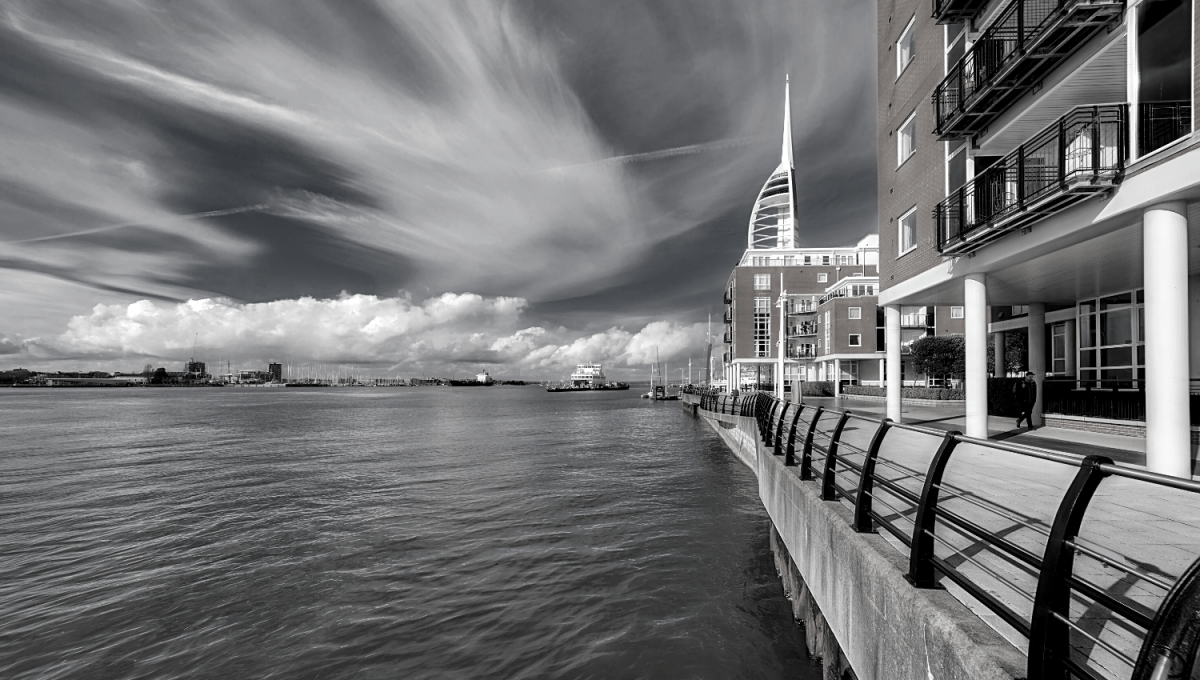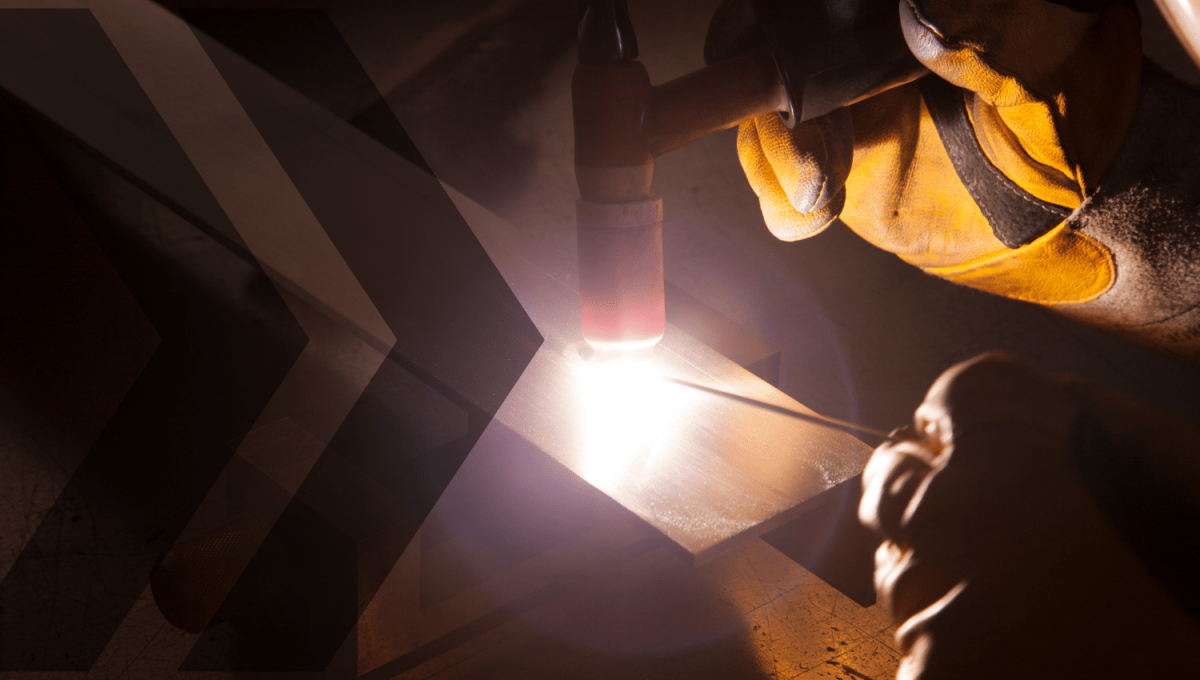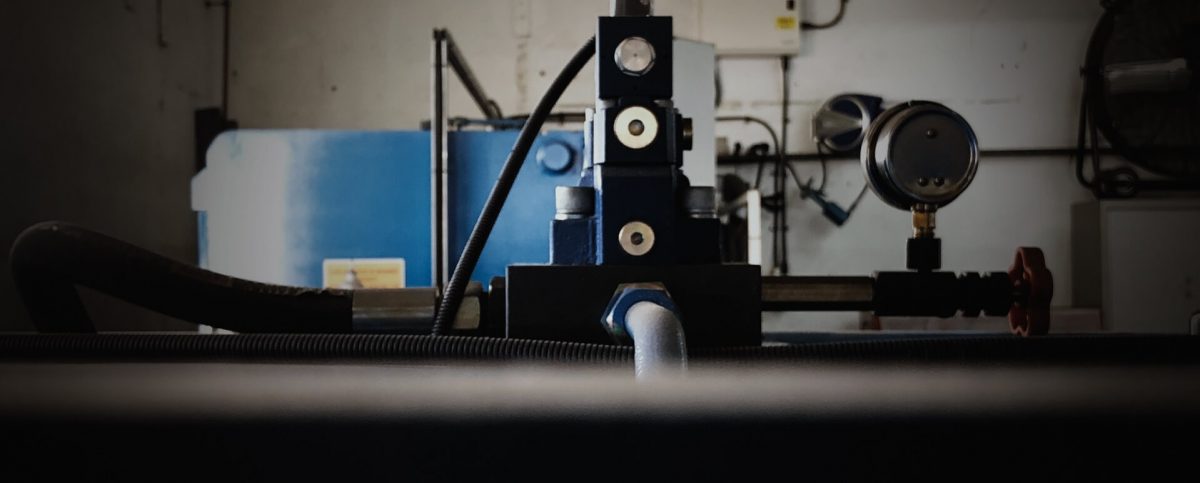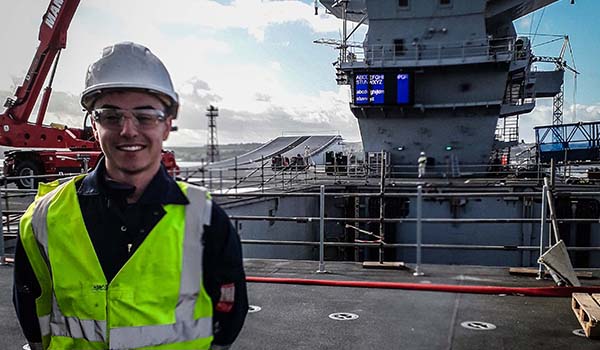Henry Barker was one of the first apprentices hired by Hythe Group’s original company, Hythe Marine Services. Alongside Rhys Smallman, Henry joined the team as an Apprentice Pipefitter and Welder in September 2012 just after finishing school.
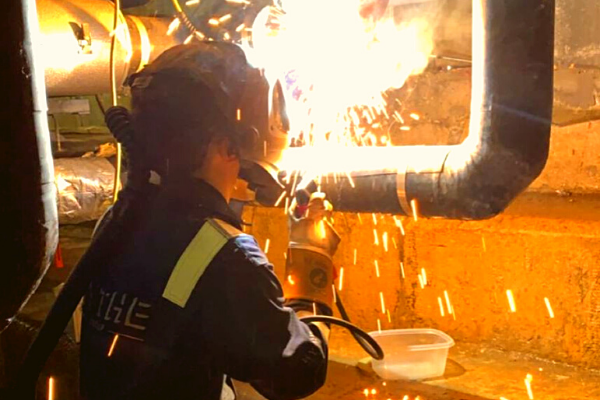
After completing his apprenticeship, Henry became full time with Hythe Marine Services, until his recent move to Hythe Building Services.
We spoke to Henry to find out about his career, company changes and the importance of personal growth.
Henry’s Career at Hythe Group
Although Henry’s apprenticeship with Hythe Marine Services started in September 2012, this wasn’t the official beginning of his career. Henry explained, “Luke Fitzgerald (Director of Value Engineering) used to bring me into the HMS workshop on Saturday mornings so I could gain experience. This opportunity led to an offer for an apprenticeship position once I finished school.”
Henry’s Pipefitters Apprenticeship lasted for four years. During the first year, Henry completed his Level 2 NVQ at PETA, an engineering college, before spending six months onsite with Hythe Marine Services. Over the final three years, while Henry was completing his Level 3 NVQ, a PETA assessor would visit monthly to determine his progress.
Throughout this time, Henry was also working toward his Level 3 City and Guilds qualification at Southampton City College.
Henry told us, “I completed my apprenticeship in the summer of 2016. Since then, I have worked on numerous projects for HMS. Most notably in Portsmouth dockyard but I’ve also worked at Southampton General Hospital, Whitman’s Laboratories and in Italy for two weeks working on a superyacht.”
In 2019, Henry moved from Hythe Marine Services to Hythe Building Services.
Changing Sectors: From the Marine Industry to Building Services
Since his move in 2019, Henry has worked on various projects at different sites across the south coast, and in HBS’ fabrication workshop.
When asked why he decided to move companies, Henry said, “After working mostly in Portsmouth dockyard for seven years, I wanted to experience a new challenge and see what the outside world was about. Luckily for me, that opportunity was there for me at HBS, who were happy to take me on.”
Henry will be using the welding and pipefitting skills learned during his time with Hythe Marine Services, as they are still a fundamental part of his role. However, this career move also offers the opportunity to learn new skills.
“The thing I look forward to most about working with Hythe Building Services is the opportunity to be working at different places. Although some of our projects are fairly long, it’s nice to get out and about on the different sites. I enjoy seeing where all the pipework actually goes and how all the different systems are put together.”

Apprenticeships with Hythe Marine Services
Although the companies are separate entities, it’s important for them to have strong cross-sector relationships. When employees move across companies, it forms a new link between each team. These connections are crucial for the strength of Hythe Group as a whole.
Similarly, the experienced generation passes down their knowledge and skill to the younger employees and apprentices. Without this, decades of expertise would be lost.
Henry is a prime example of the value in educating young people in trades. Henry had the opportunity to go to college to learn his trade, whilst working on jobs alongside experienced workers. This involved a lot of hard work on Henry’s behalf to get to where he is today. However, he also recognises the role his fellow team members had in his success.
Henry told us, “I owe a lot of praise to my fellow workers at HMS who put in the time and effort to help me get to the stage I’m at. Hard work and a positive attitude are still needed, and I hope I set a good example to my fellow workers.”
If you’re interested in finding out more about apprenticeships with Hythe Marine Services, take a look at the following articles:
- A Careers Starter: Hythe Marine Services Apprenticeship Scheme
- From Pipefitting Apprenticeship To Full-time Pipefitter
How has Hythe Marine Services Evolved over the years?
We asked Henry whether the company has changed over his career. He told us, “HMS has evolved massively since I first joined the company. It was a relatively small company back when I first started, and over the years it’s grown a lot, with the open projects seemingly increasing every year. The company has welcomed many new faces since I’ve been there, and each one of them has helped to push the company in the direction it’s at today.”
Henry also mentioned that he believes Hythe Group is different from a lot of other companies because of the diverse amount of work the group of companies undertakes, and the endless opportunities available to people. He explained that there are always new things to be learned, and new experiences available somewhere within the company.
Read more about the History of Hythe Group.
Interested in working with the Hythe Group team or enquiring about our services? Get in touch today.
